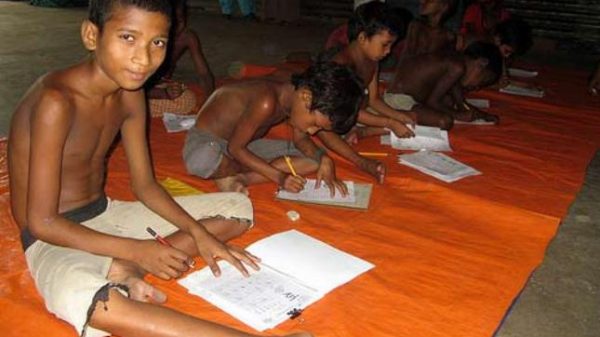WB approves $6.5m to help poor children complete primary education

- Update Time : Saturday, December 12, 2020
- 165 Time View

The World Bank Saturday approved $6.5 million to help poor children living in urban slums complete primary education as well as provide pre-vocational training to poor school-dropout youths in Cox’s Bazar.
This additional financing to the Second Reaching Out of School Children (ROSC II) Project will enable about 39,000 slum children, aged between 8- to 14-years in eight city corporations to complete primary education.
Further, the project, along with the additional financing, will enable about 8,500 out-of-school youth and adolescents of host communities in Cox’s Bazar, where influx by the Rohingya population created enormous pressure on the local people, to complete pre-vocational and enterprise development training.
The three-month courses are aimed at creating skills for trades that match with market demands.
“COVID 19 pandemic has negatively impacted many low-income families and children from poor households in slum areas are more likely to drop out of school. Similarly, youth may also face more difficulty in finding jobs as the crisis prolongs,” said Mercy Tembon, World Bank Country Director for Bangladesh and Bhutan. “The additional financing to this project will help pupils complete primary education as well as enable youths to learn skills to create livelihood opportunities.”
Since 2019, the ROSC II project has been also providing learning opportunities and psycho-social support to about 350,000 Rohingya children in Teknaf and Ukhia Upazilla in Cox’s Bazar.
“The project provided second chance education to children from poorest families, who otherwise would have missed education. About 690,000 children—almost half of them are girls—studied in learning centers, known as Ananda Schools (schools of joy),” said Syed Rashed Al-Zayed, World Bank Team Leader for the project. “Built on the success of the Ananda Schools, which played an important role in realizing government’s vision of ‘education for all,’ the project was expanded to cover children in urban slums. To respond to the challenges of Rohingya influx, it provides vocational training to youth in host communities and learning opportunities to Rohingya children in Cox’s Bazar.”
The Ananda Schools were set up in upazilas with high poverty and low enrolment and completion rates. They provided stipends to eligible children to ease the burden on their families and provided free books, stationery, and uniforms. Results from the project have been positive. About 84 percent of students from the Ananda School passed the Primary Education Completion Examination in 2018.
Since schools remained close due to the ongoing COVID-19 pandemic, the project is extended by six months till June 30, 2021, to complete the remaining activities. The credit from the World Bank’s International Development Association, has a 30-year term, including a five-year grace period. With this additional financing, the World Bank’s contribution to the ROSC II project stands at $161.5 million.
The World Bank was among the first development partners to support Bangladesh following its independence. Since then, the World Bank has committed more than $33.5 billion in grants, interest-free, and concessional credits to the country.















